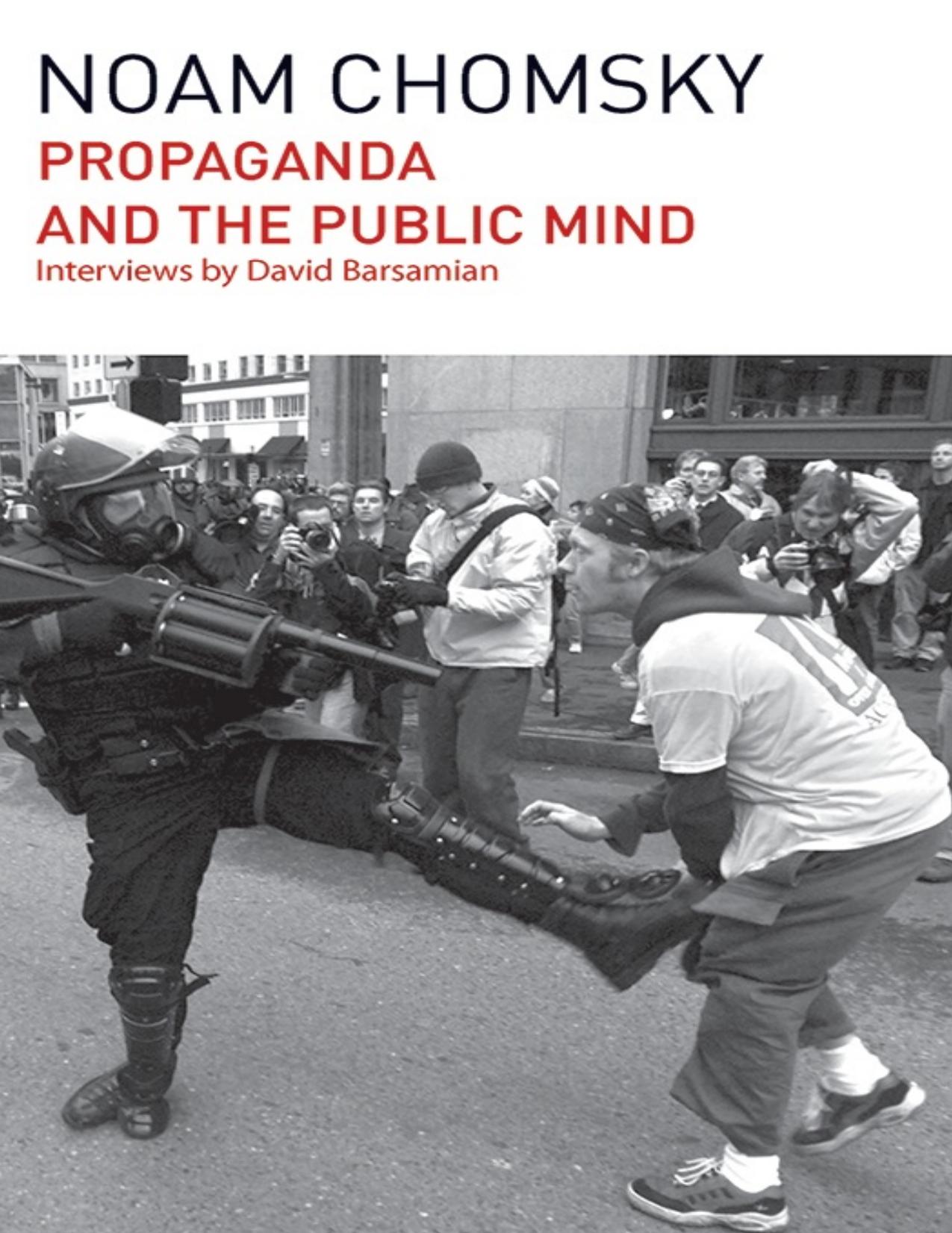Propaganda and the Public Mind by Noam Chomsky & David Barsamian

Author:Noam Chomsky & David Barsamian
Language: eng
Format: epub, mobi, pdf
Tags: Politics, Current Affairs
ISBN: 978-1-60846-444-9
Publisher: Haymarket Books
Published: 2015-03-31T16:00:00+00:00
5.
The Meaning of Seattle
KGNU, Boulder, Colorado, February 23, 2000
Let’s talk about what occurred in Seattle in late November and early December around the World Trade Organization’s ministerial meeting. What meaning do you derive from what happened there?
I think it was a very significant event and potentially extremely important. It reflected a very broad feeling which has been pretty clear for years and has been growing and developing in intensity around a good part of the world. It is opposed to the corporate-led globalization that’s been imposed under primarily U.S. leadership, but the other major industrial countries, too. It is harming a great many people, undermining sovereignty and democratic rights and leading to plenty of resistance.
What was interesting in Seattle was several things. First of all, the events reflected very extensive programs of education and organizing, and it shows what can be achieved by that. It wasn’t just that people suddenly showed up. Secondly, the participation was extremely broad and varied. There were constituencies brought together that have rarely interconnected in the past. That was true internationally: third world, indigenous, peasant, labor leaders, and others participated. And it was true here in the United States: environmentalists, labor, and other groups, which had separate interests but a shared understanding, worked together.
It’s been pretty evident before. That’s the same kind of coalition of forces that blocked the MAI a year earlier and that had strongly opposed other so-called agreements like NAFTA or the WTO agreements, which are not agreements, at least if the population counts. Most of the population has been opposed to them. It has reached a point of a kind of dramatic confrontation. Also it will presumably continue and I think could take very constructive forms.
Are there any lessons from Seattle?
One lesson is that education and organizing over a long term, carefully done, can really pay off. Another is that a substantial part of the domestic and global population—I would guess probably a majority of those thinking about the issues—range from being disturbed by contemporary developments to being strongly opposed to them. People are opposed to the sharp attack on democratic rights, on the freedom to make your own decisions, and on the general subordination of all concerns to the specific interests, to the primacy of maximizing profit and domination by a very small sector of the world’s population. Global inequality has reached unprecedented heights.
The United Nations Conference on Trade and Development has been meeting in Bangkok. Andrew Simms, writing in the Guardian Weekly, says, “Given the right power and resources it could help overcome failings in the international system” and has “the confidence of developing countries.”1
That’s a bit of an exaggeration. UNCTAD, first of all, is basically a research organization. It has no enforcement powers. It does reflect to some extent the interests of the so-called developing countries, the poorer countries. That’s the reason why it’s so marginalized. For example, there was very little reporting of the UNCTAD conference in the U.S. apart from the business press here and there. It has third world participation.
Download
Propaganda and the Public Mind by Noam Chomsky & David Barsamian.mobi
Propaganda and the Public Mind by Noam Chomsky & David Barsamian.pdf
This site does not store any files on its server. We only index and link to content provided by other sites. Please contact the content providers to delete copyright contents if any and email us, we'll remove relevant links or contents immediately.
The Secret History by Donna Tartt(19027)
The Social Justice Warrior Handbook by Lisa De Pasquale(12182)
Thirteen Reasons Why by Jay Asher(8883)
This Is How You Lose Her by Junot Diaz(6872)
Weapons of Math Destruction by Cathy O'Neil(6260)
Zero to One by Peter Thiel(5782)
Beartown by Fredrik Backman(5734)
The Myth of the Strong Leader by Archie Brown(5491)
The Fire Next Time by James Baldwin(5423)
How Democracies Die by Steven Levitsky & Daniel Ziblatt(5211)
Promise Me, Dad by Joe Biden(5139)
Stone's Rules by Roger Stone(5078)
A Higher Loyalty: Truth, Lies, and Leadership by James Comey(4946)
100 Deadly Skills by Clint Emerson(4911)
Rise and Kill First by Ronen Bergman(4775)
Secrecy World by Jake Bernstein(4738)
The David Icke Guide to the Global Conspiracy (and how to end it) by David Icke(4696)
The Farm by Tom Rob Smith(4500)
The Doomsday Machine by Daniel Ellsberg(4481)
